Elon Musk is now the majority shareholder of Twitter. He also holds a seat on the board until 2024 at the earliest. Musk’s 9.2% stake is equal to 73.5 million shares and it set him back around $2.4 billion. Twitter’s price soared by 27% on the news, meaning that the value of the stake has already climbed to around $3 billion. Musk's first move? To create a poll asking users whether they want an edit button (over 70% said that “yes” they do).
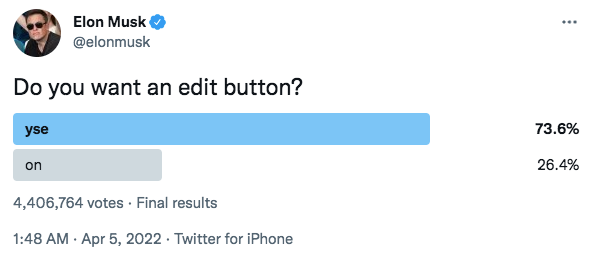
Big changes ahead for Twitter?
Interestingly, Musk didn’t break the news via his own Twitter feed. He left that to chief executive Parag Agrawal and then commented that he was excited to make “significant improvements” in the near future. Shortly afterwards, Agrawal also warned users to think carefully about voting for an edit button, a change with “consequences.” The permanent nature of tweets has been a fundamental part of Twitter’s ethos from the beginning and the platform has long resisted calls to allow edits.
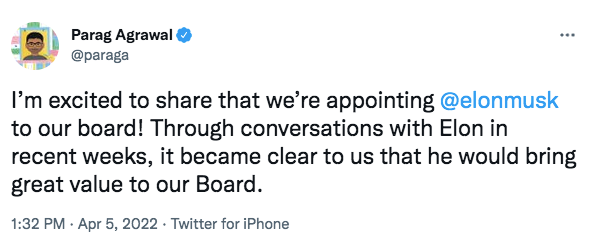
Judging by the tone of the tweets, Musk will move quickly to implement other changes too. Agrawal describes him as an “intense critic,” seemingly setting the stage for big changes. Much of that criticism has focused on freedom of speech (or the perceived lack thereof). Musk at one point even considered creating his own social network. Less than a month ago he posted a poll asking whether Twitter adhered to the principle of freedom of speech - over 70% of responders said that it didn’t.
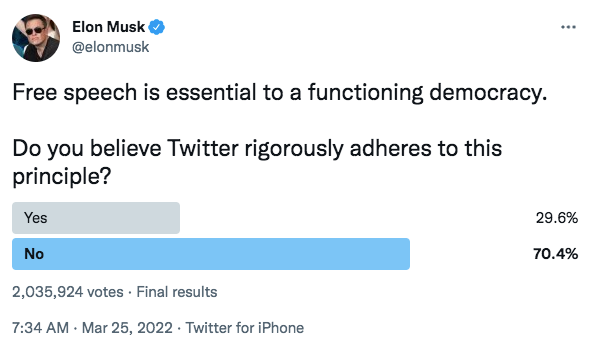
With a free speech battle looming large, Republicans have already made pleas for him to reinstate Donald Trump’s account. Musk is a self-styled “free speech absolutist” who even claimed that by failing to adhere to those principles Twitter “undermines democracy.” Any changes in this direction would also involve tweaks or an outright overhaul of the Twitter algorithm, something that Musk floated with another poll (this time over 80% of responders voted that the algorithm should be open source).
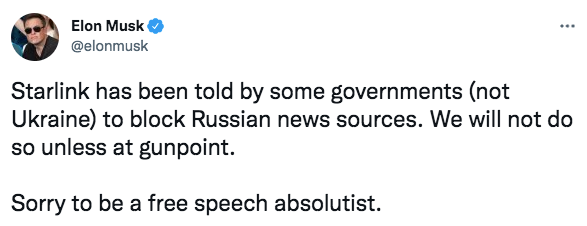
Musk’s stormy relationship with Twitter
A prolific meme poster, Musk hasn’t disappointed since the announcement. One image shows him engulfed in smoke (from his infamous appearance on Joe Rogan’s podcast) with the caption “the next Twitter board meeting.” Another suggests that this was all just a long game to finally implement an edit button. Musk has long exemplified the “stream of consciousness” tweet style. He tweets what he thinks in a moment, without any corporate gloss. Whatever his plans for Twitter are, one thing is certain: it won’t ever be boring.
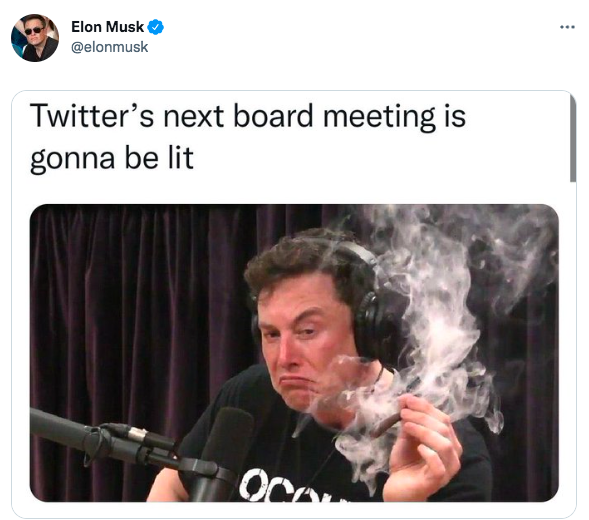
His prolific and sometimes impulsive tweeting has occasionally landed him in trouble, though. From asking whether he should sell 10% of his Tesla shares to offering to sign a $6 billion cheque solving world hunger, his tweets have attracted controversy. The Tesla share poll landed him in hot water with the Securities and Exchange Commission, and a tweet during the 2018 Thai cave rescue saw him sued for defamation (a case which he won).
The exact size of the stake might be important. Anybody with a 10% or higher stake in a company is classed as an “insider” by the SEC. Insiders are subject to considerably more scrutiny, something that Musk might want to avoid given that he’s run afoul of the SEC before. His lawyers have even accused them of trying to curtail his freedom of speech. Whatever the reason for the number, 9.2% is still huge and x4 that of Twitter founder Jack Dorsey.
A not so passive stake
Although the 9.2% was described as a passive stake, there isn’t anybody in the world who believes Musk will sit back on the decision making. He certainly has a love-hate relationship with Twitter, having variously called it both a “hater Hellscape” and somewhere that “rocks.” With 80.7 million followers, he’s one of the most influential and prolific users, so it will be interesting to see if he moulds Twitter into his vision of what a social network should be.
Regardless of his plans, Musk could still face a few bumps in the road. His filing with the SEC (which declared his share acquisition) was several days late. It also omitted any certification regarding his passive status. These are common and simple steps, but by overlooking them Musk could find himself embroiled in yet more legal wrangling with the SEC.
The next few months will herald big changes for Twitter, but they could reach even further. Questions around freedom of speech, content moderation and algorithms have always plagued social media platforms, but those debates have got much louder recently. Just how Musk answers these questions, and how his vision for Twitter takes shape, might well inform other platforms for years to come.
Read More:
Elon and Jack TLDW
Crypto Paychecks, Finally


